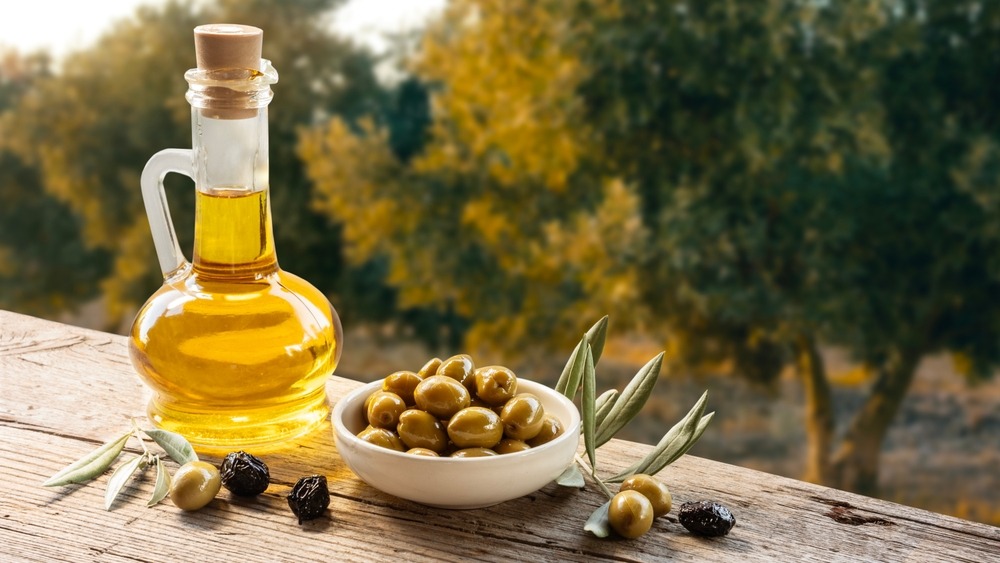Olive Oil Prices Set to Halve as Industry Eyes Recovery from Crisis
The world's leading olive oil producer has announced that prices for the so-called "liquid gold" are likely to drop significantly from their record highs. Deoleo, based in Spain, indicates that one of the toughest periods in the olive oil industry seems to be coming to an end, with prices projected to nearly halve in the next few months.
Recent years have seen a series of extreme weather events and droughts in southern Europe, which have drastically affected olive harvests. This situation led to a remarkable surge in prices that took both industry experts and consumers by surprise. The shortage of olive oil, a key component of the Mediterranean diet, pushed the sector into a state of crisis, raising concerns about food security and even leading to an increase in thefts at Spanish grocery stores.
Fortunately, prices have started to stabilize, as forecasts suggest a much better harvest for the 2024-2025 season, especially in major producing nations like Spain, Greece, and Tunisia. Miguel Ángel Guzmán, Deoleo's chief sales officer, shared with CNBC that while there are signs of improvement, it would be premature to declare the crisis over. He mentioned that there is still tension in olive oil prices, particularly for higher-quality varieties like Extra Virgin, and some uncertainty remains as the new harvest approaches. Nonetheless, Guzmán expressed optimism for the upcoming months, anticipating that the market will begin to stabilize and that normalcy will gradually return as the new harvest unfolds and supply increases.
Deoleo Sees Hope Amid Challenges
Deoleo, the producer of well-known olive oil brands like Bertolli and Carbonell, referred to a perfect storm of challenges as “one of the most difficult moments in the history of the sector” during the summer and called for a “profound transformation” within the industry.
As of November 6, extra virgin olive oil prices in Spain’s Andalusia were reported at 6 euros ($6.33) per kilogram, according to Expana, a market intelligence firm focused on agriculture and food. This marks a decrease of about 19% from the previous month and nearly 35% from a record high of 9.2 euros in January. Spain produces over 40% of the world’s olive oil, making it a key reference point for global prices.
GM Cuts 1,000 Jobs Amid Strategic Realignment and Cost-Saving Push
“We expect the easing of prices at origin to start between November, December, and January, assuming that weather and harvest conditions remain stable in the upcoming weeks,” Guzmán stated. “Signs suggest that if everything proceeds as expected, particularly with continued rainfall benefiting production, we could witness a downward price trend throughout 2025,” he added.
Deoleo projected that olive oil prices could drop to around 5 euros per liter, a significant decline from the highs of 9 to 10 euros that have been common in Spanish supermarkets this year. “This price would be reasonable in a scenario of increased production, which would alleviate market pressures and support a gradual return to stability after a period characterized by volatility,” Guzmán explained.
Climate Change Spurs Industry Innovation
Kyle Holland, senior market reporter for oilseeds and oils at Expana, noted that most industry participants were “very, very bearish” about the price outlook. “The production figures are crucial. For Spain, we’re anticipating around 1.3 million metric tons, compared to last season’s 670,000 to 680,000 metric tons, depending on the source, which is nearly double,” he said.
In addition to Spain, Holland mentioned that bumper olive harvests were also expected in Greece, Tunisia, and Turkey, highlighting that the quality of the olives seemed promising.
Many individuals hold a strongly pessimistic view. They struggle to envision how prices could rise given the current supply levels, Guzmán from Deoleo noted. He pointed out that two years of consecutive drought have raised alarms within the industry, which must now adjust to a future that is becoming more unpredictable due to climate change.
To tackle this issue, Guzmán mentioned that the olive oil industry is making substantial investments in innovative agricultural technologies and working on creating more resilient olive varieties. “This is essential, as climate change poses a significant threat to the industry's survival,” he emphasized.










